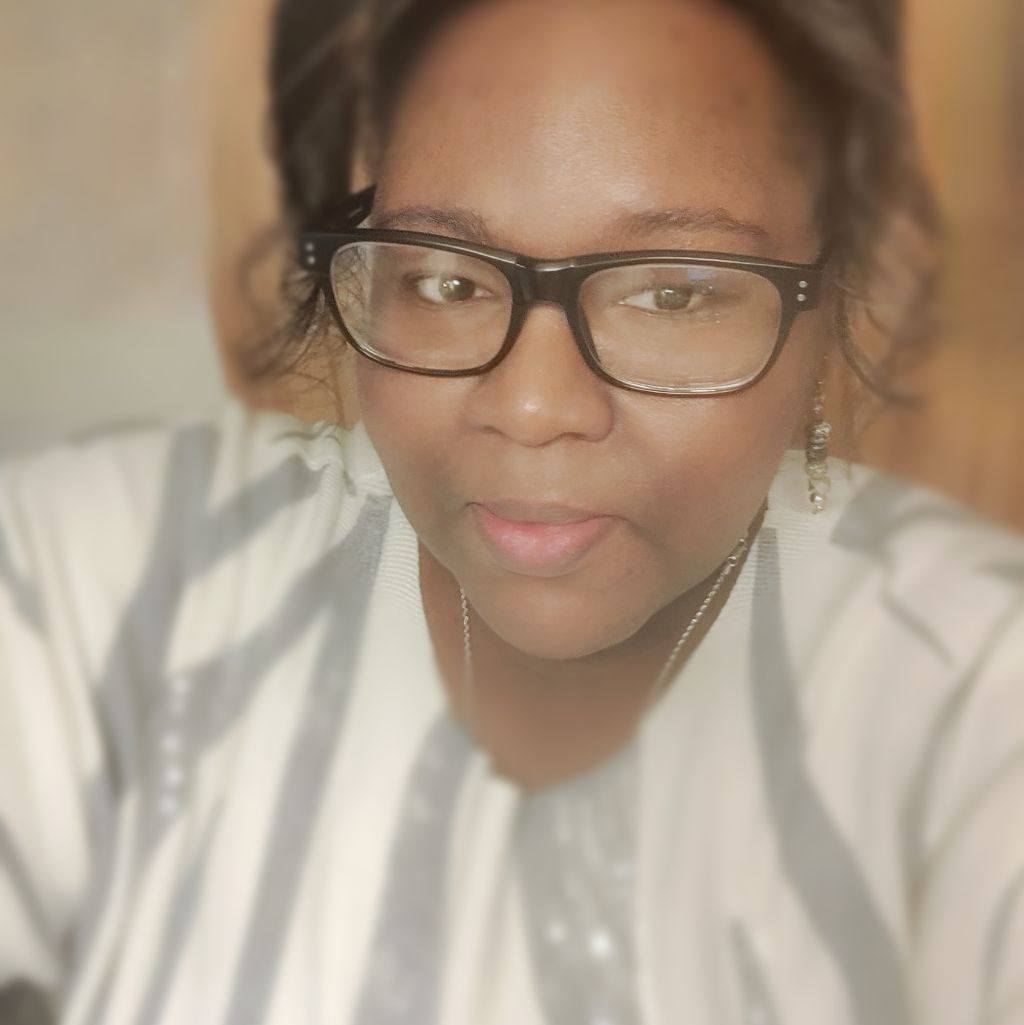

Today we’d like to introduce you to Henrietta Natashya Slaffey.
Hi Henrietta Natashya, thanks for joining us today. We’d love for you to start by introducing yourself.
My clinical practice journey has been one that I found many have shared but do not often talk about. There are some unique points as those points pertain to my life however I do not have the common story of simply going to college, having parents to help support me through college, and then getting a “regular” job and working up from there. I became a social worker.
Social workers have a burn out rate of 1 in 3 and are not educated in the details of what that looks like depending on where you practice your advanced degree. In my opinion social workers are expected to have knowledge beyond that of sought out professions such as doctors and lawyers without having had the education in some cases.
Before I became a private practice owner and licensed clinical social worker, I did not think that this was where I would end up and it was never in my wildest dreams that I could or would be here. It is hard for me to toot my own horn because I do not see what I do as being out of the normal. It is from others that I hear accolades. My educational pursuits started in 2009 with the stock market crash. I was making good money at third party call center for AT&T as a Quality Assurance Manager when it came to a crash and went from making $32.00 an hour to $7.25 minimum wage. I thought that I could do the “work to corporate” route and that caused me to struggle to make ends meet as a single mother and had to work 3 jobs to support the income I needed to take care of my child after the stock market crash. I have 1 biological child and over the course of the years invited other children into my home that I supported as a non-traditional kinship placement.
This was the turning point, and I decided to go back to school to further my education. I spent several years trying various disciplines. I did not feel like I had direction, however throughout all the issues that I was facing, I found time to support other single mothers in the community. I felt that even with a little, there was always enough to share. In college I started a couponing group to purchase and budget for food with some of the other single mothers in the community and started a clothing exchange amongst us for our children. I helped women like me, advocate for housing, social supports, and grants that would support educational cost and supplement income. Due to having strained income, I researched and learned how to make body care products like soap, lotion, and body spray/oils. I would make these items in large batches because I could not afford the items that I needed. My children have sensitive skin and most of the items that we needed were not affordable and when I could afford them, they did not work. This led to me starting a small business for my products as other parents were interested in this process too. Little did I know that this was my foundational social work contribution.
I spent time volunteering at the local elementary school as a site council president which allowed me more access to the underserved people, and I focused my time on single mothers who needed basic supplies. I spent several years at a community college before realizing that I was a social worker by nature. Fast forward to 2014, my sister suggested that I check out the Social Work program at Kansas State University. She helped me understand that all the things that I was doing fits the social work model,
• service
social justice
dignity and worth of the person
importance of human relationships
integrity
competence.
I cannot begin to express my gratitude enough to some of the educators of the social work program at Kansas State University, who have pushed me to grow in ways that allow me to be the best version of myself today. This program helped me tremendously personally and professionally. I had enormous support in ways that are unique to me. A special shout out to Dr. Lorenza Lockett , Dr. Gibson, and Dr. Tushabe.
Would you say it’s been a smooth road, and if not what are some of the biggest challenges you’ve faced along the way?
I faced societal barriers being an older African American female in college classes with 17- and 18-year-olds whose life experience and backgrounds were largely different than mine and were often questioned as authentic because no one else had the similar background. I felt that non-traditional students were not given the same support and are forced to seek out additional help in ways that traditional students do not.
The road to my clinical practice was not smooth and I had to do a lot of work in order to beat systemic odds. Some of the struggles I experienced were largely cultural and systemic. Often being told that I cannot do or be certain way. How to wear my hair or clothing is a real factor being an African American. In the workplace, I was told that I needed to only work with a certain demographic and status of people.
When I started my clinical practice, I did not want to offer traditional therapy. I wanted to create an environment for all walks of life and could handle divery. To provide therapy, I needed to have supervision that consisted of having an already licensed at the highest level practitioner to ensure compliance with the licensing requirements. I reached out to over 150 licensed therapists, and it took almost a year to find a therapist who would support me in what I wanted to do.
I found that there are serious concerns with gate keeping information within the licensure gap between master’s degree and obtaining a clinical license. Mainly those who have experienced the hardships of obtaining supervision and the financial cost associated with this 2-3 year long process tend to be the reason that a lot of people shy away from the advanced licensure. I experienced this firsthand and confirmed with other practitioners from their experiences.
Other issues that are not being taught about are the financial and business side of running a business practice. In addition to the tendency for social workers to get “work casted” as being only case managers and/or department of family and children (DCF) service workers. There is also an overwhelming stigma that social workers only remove children from their families and have people arrested. However, this line of work only represents one type of employment in the social service field where social workers are employed. Social workers are embedded in law, medicine, marketing, politics, and engineering.
I began my personal practice by providing mobile therapy in the community, outside of the traditional therapeutic environment. However, in 2020 due to Covid I switched to a conventional office space. I created a program that works with the entire person, using a client-centered approach. I established a wholistic catchment to include environmental factors and the epidemiology of human connection and communication.
Thanks for sharing that. So, maybe next you can tell us a bit more about your work?
In my professional career, I seek to support all areas of life. I provide mental health therapy and work to support the community and other practitioners. I equally work with other professionals in their mental health and support them in growing their own private practices. This consists of sharing resources, writing and reviewing policies/programs, and company manuals, credentialing with insurance, and compliance with licensure requirements. I work to make my practice comfortable for all walks of life. We all share human experience and although it is different from one another it is similar in many areas. I share this experience with my clients and colleagues and this connection is the most important thing in my opinion to do the work.
At the end of your therapeutic work with me, you will have done a great deal of work to get the best possible outcome. My motto is, “If you do the work, it will work.” I tell my clients that therapy with me will be one of the hardest things you will do in your life, but it will yield the results if you come with and understand that you are going to unlearn what you have been told to be true and work on the things that are true for you and apply them.
We’d be interested to hear your thoughts on luck and what role, if any, you feel it’s played for you?
I do not believe that I have been lucky. I believe that I have had a series of people who have shown me great compassion and support. I still had to and continue to do the work. Everyone needs help from someone in every season of life. I was given that help in different seasons in my life when I needed it the most and at times I did not, I handed it forward. My sisters Sonjia Slaffey and Sanjia Slaffey have been tremendously supportive throughout my entire career. Fiana Martin LSCW, RPT-S, LMAC, CST became my clinical supervisor and mentor who supervised my clinical practice. Several other silent participants, some I have thanked over the years and some still do not know the grace they have shown me. I hope that all the people who have got me here know that I am infinitely grateful. This is the reason for my company name. Without the infinite connections, I would not be able to give it back.
Pricing
Pricing varies from practice to practitioner. I offer a sliding fee rate based on income at a 40% rate for those who are uninsured. The minimum a client can expect to pay without insurance is $50.00 per session. The maximum is $210.00 per session. Despite the price difference between clients, everyone gets the $210.00 dollar experience. I use the federal poverty rates. Insurance varies and contracting with insurance companies causes a fluctuation of rates and those prices are set by the individual insurance companies. It is important for clients to understand what their insurance will pay because they will have to pay the difference.
Contact Info:
- Website: https://www.infin8ecounselingconnections.com
- Instagram: https://www.instagram.com/infin8eccllc/
- Facebook: https://www.facebook.com/INFIN8ECCLLC
- LinkedIn: https://www.linkedin.com/in/henrietta-natashya-slaffey-7a6a0875/
- Youtube: @infin8ecounselingconnections

















